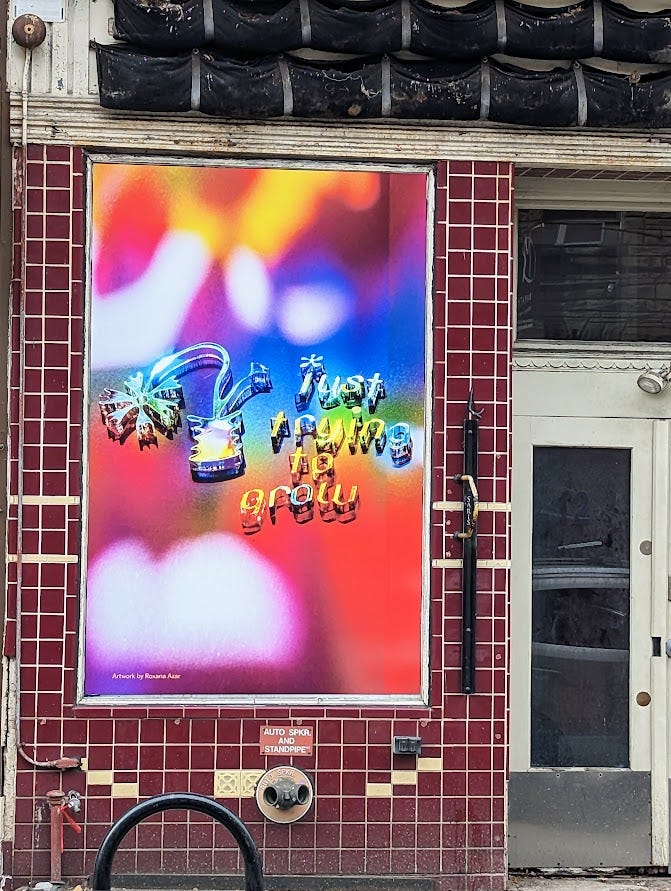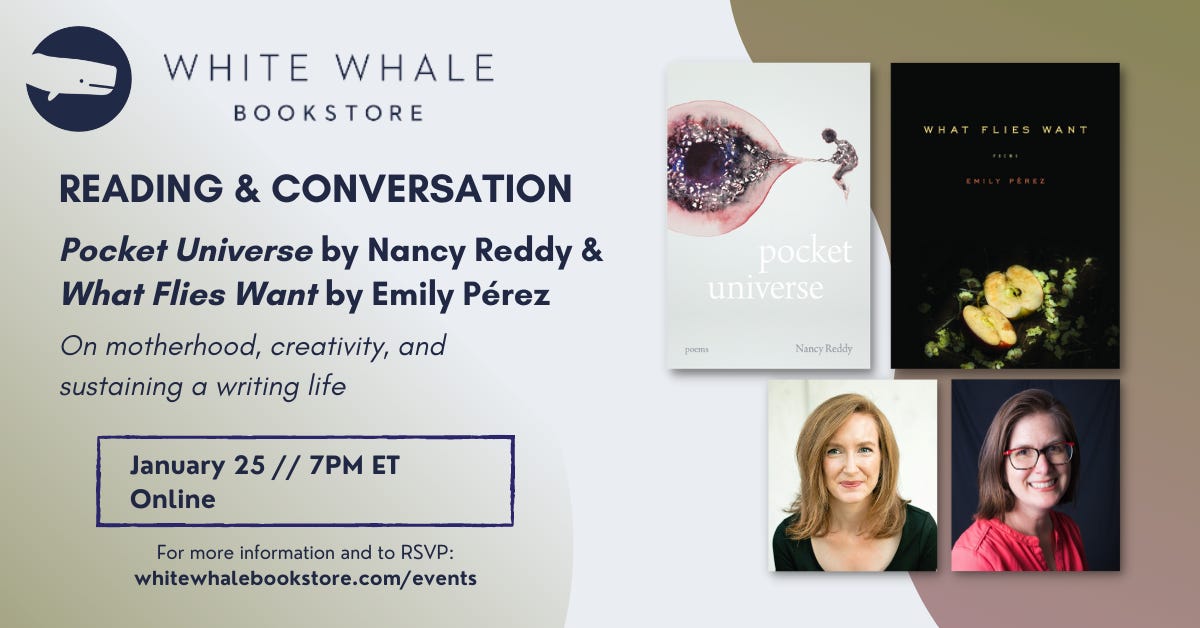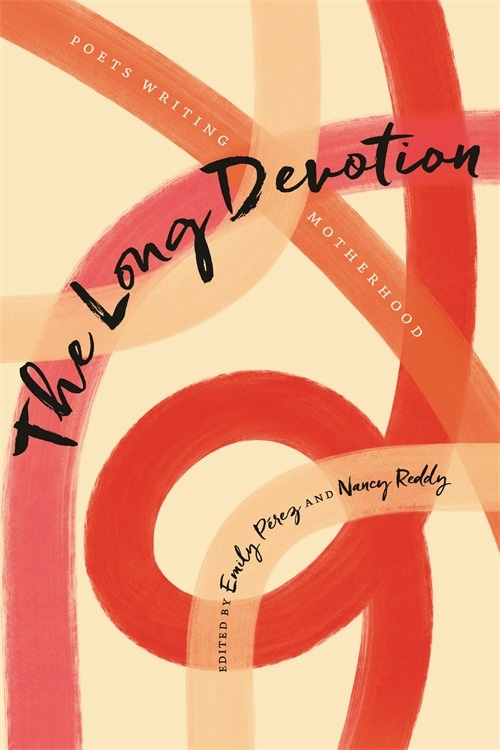

Discover more from Write More, Be Less Careful
just trying to grow
January Jump Start #3: lead and lag measures, with help from Gretchen Rubin and Kim Liao and a little nod to Cal Newport
Happy New Year, and welcome to Write More! We’re trying something new for the new year—the January Jump Start. Every Sunday in January, you’ll get an email with a tip or strategy to help you set goals and track your progress. If you’re hoping to write more this year, it’s going to be a fun way to get started. So far we’ve talked about crafting a vision and making a vision board and listing what we’re working on and why.
If you want to join us, subscribe here.
(And if you’re new here, welcome! I’m so glad you’re here.)
How has the new year been treating you? I feel like mine is still starting slowly, and I’m doing my best to be patient with that. I finally finished my vision board the other night, and I’m too jinxy to share much here, but I will say one of the phrases at the very top is “radical hope,” which seems like a good energy to have in front of me all year. Though I’d offer “deranged perseverance” as another excellent option.

(And if you’re a vision board skeptic, maybe just give it a try anyway? I really do think there’s something about articulating your vision for the year—not necessarily specific goals and milestones and products, but the feeling you’re aiming for, the vibes, if you’re willing to go that far—that can be really helpful. One thing we talked about during the vision board party was that it’s can also help you to set aside the things you don’t want. (You can watch a recording from the vision board party, if you like—it’s less than 7 minutes.) This year, I clipped and then discarded a bunch of things like “THE TIME IS NOW” that would have really spoken to me in previous years. I’m still working hard this year, but I’m not trying to summon that kind of frantic, move faster go harder feeling in 2023.)
Whew. That was a lot of talk about vision and energy—I really am generally a pretty practical make a list, make a plan kind of person. And that’s what we’re coming back to today.
if you’ve enjoyed this newsletter, clicking the little heart at the top or bottom can help other people find it!
We’re going to make our plan in two steps. Last week, I suggested you make a big list of all the things (the whats) you want to do this year and for each what, consider your why. For the next two weeks, we’ll work on the how. This week, we’re going to talk about deciding how to track your work toward those goals—what measures can help you know if you’re heading in the right direction? And then next Sunday, we’ll map those goals on to a calendar and make a plan.
I’ve written before about the power of counting as a way of getting more of what matters in your writing life. I really like Gretchen Rubin’s way of putting it:
Maybe there’s something you’d like to change in your life—to get more of something good or less of something bad. Try this: figure out a very concrete way to measure and track it. By counting the things that count—and pushing yourself to find a way to count the things that seem as if they can’t be counted—you make sure they’re part of your life.
Someone who’s really helped me to think about the power of counting is Cal Newport. I say that with a bit of a sigh because I find him both smart and aggravating; he’s all about deep work, which I think is important, but he’s also (I suspect) the kind of productivity bro who hasn’t cleaned a toilet or seen the inside of a grocery store in years because that’s shallow work best outsourced to a wife or instacart shopper. (If anyone has any actual intel on Newport’s life, fill me in! I’d love to be wrong about this.)
(An aside: Karla Starr, who co-wrote a book with a different productivity bro, is very smart and insightful on this phenomenon; her newsletter The Starr Report is excellent reading on the perils of productivity as an aim.)
BUT one of the things I did learn from Cal Newport is the difference between lead and lag measures, which is the exact kind of business school talk I spent all of college studiously avoiding. (Sorry, mom.) Lead measures are the thing you can control—the work you’re putting in—while lag measures are the product or the outcome.
Our goals are often stated in terms of lag measures. Say you have a goal of selling 1,000 copies of your book—that’s a lag measure. You can watch the sales tick by, but you can’t really control the sales themselves. So what can you influence? You can pitch yourself to podcasts and newsletters, send out review copies, plan events, share your book on social media. Those tasks—pitches, events, posts—are your lead measures. You can plan them and count them and see if they’re moving you in the direction you want to go. That’s the work you can control. (This is also the logic behind Kim Liao’s argument for aiming for 100 Rejections a year—you can’t ensure your work will be accepted, but you can keep pitching/submitting/applying.)
this week’s exercise: deciding what to count
Take a look back at your list and pick a couple things—say, two or three—to start with.
For each of those things, identify a lead measure that will take you in the right direction. For example, if your goal is to publish more essays this year, one lead measure might be the number of submissions. (You truly cannot win if you don’t play.) Another lead measure could be word count or time spent writing.
If you have a big goal, like finishing a book, you might need to break that down into smaller milestones—finishing the first chapter of a novel, making an outline for a a nonfiction project, collecting and printing all the poems you’re considering including in a manuscript. Then identify a lead measure (or a couple) that will help you track your progres toward that milestone.
We’ll talk next week about making a spreadsheet, setting up your calendar, establishing a rhythm, and deciding on targets and deadlines. Your goal today is just to answer the question: what can I measure to tell me if I’m heading in the right direction?
elsewhere on the internet
For Catapult, I wrote about how to make the most of a writing residency—whether your residency is a fancy, formal program or an afternoon at the library, whether “making the most” means writing a ton of words or resting and dreaming about what’s next. (I also shared my corny handwritten list of intentions from my most recent writing residency because showing my soft underbelly is pretty much my vibe this year, so click through if you’re interested in that.)
upcoming events (on the internet and in 3D, in Texas!)
The Long Devotion at a Hundred Pitchers of Honey (online), Th, January 19th, 7.30 pm eastern
One of the exciting things about editing The Long Devotion was finding poets who are writing so many different experiences of mothering—and I’m particularly excited about the lineup for the Long Devotion reading for Donna Vorreyer’s great online reading series, A Hundred Pitchers of Honey. We’ll hear from poets Sunu Chandy, Emari DiGiorgio, January Gill O’Neil, Clarissa Mendiola, Joyelle McSweeney, and Lena Khalaf Tuffaha, and we’ll have time for some conversation about writing and mothering and all the things. (And Donna’s generously decided to give away a copy of the book to two lucky attendees, so if you don’t have your own copy of the anthology, you could win one!) You can register at this link.
Reading & Conversation with Emily Pérez at White Whale Bookstore (online), W, January 25th, 7pm eastern
I’ve been so lucky to be in conversation (and text and email and google doc and and and) with Emily for years about writing and mothering and sustaining a creative practice. I'm so excited to share that conversation and our poems at this virtual reading hosted by White Whale Books & Coffee on Wednesday, January 25th at 7pm eastern. If you’re someone who’s working to create a sustainable creative practice alongside all the other wonderful, overwhelming parts of your life, I think you’ll really love it. You can find a facebook invite for the event here (invite a few friends, while you’re at it!) or go right to the EventBrite link here. I'd love to see you there!
The Long Devotion goes to Texas!
We’ll be in Houston Friday, February 24th for a reading at Basket Books in midtown, and we’ll be in Austin on Saturday, February 25th for a reading at the Crashbox Theater. More info and snazzy graphics to come! If you’re in Houston or Austin, I’d be so thrilled to see you there!
Write More, Be Less Careful is a newsletter about why writing is hard & how to do it anyway. I’d love to hear from you. Reply to this email, comment below, or find me on twitter (@nancy_reddy) and instagram (@nancy.o.reddy).
If you’ve enjoyed this newsletter, I’d love it if you would share it or send it to a friend.






















it's a joy to get advice this legit helpful but also humble. what's the opposite of a productivity bro? a lady of laze? i want to be that.
Thanks for sharing that Kim Liao piece about aiming for x rejections. I think I’d read it before but I forgot about it!